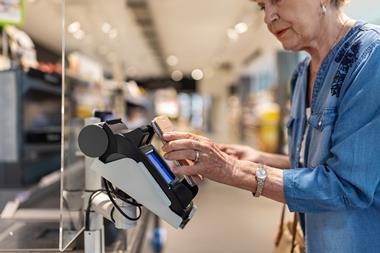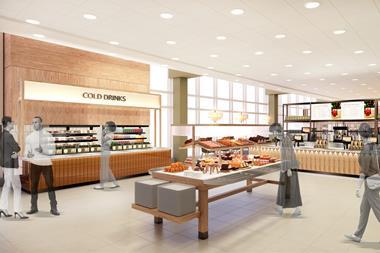Creating long-lasting loyalty as well as giving shoppers a seamless experience is the holy grail for any business. Lloyds Bank’s Ajit Ramachandran takes a look at how retailers can use customer data to stay one step ahead of competitors
Consumers now have more choice than ever. Retail businesses are consistently adjusting to an ever-evolving payment landscape. Whether it’s from emerging new technologies, regulatory changes or potential risks, the way we pay has undergone a huge transformation in the past few years.
Offering customers the choice to pay whenever and however they choose is not a new concept, but a new report from Lloyds Bank and FreedomPay suggests businesses also need to think about how they use the payment experience at checkout – and the data that generates – to build business growth.
Long-lasting loyalty
Many businesses now understand that payment data can help to define growth strategies and help make better decisions.
For example, around eight in 10 organisations said they’re using payments data to build customer profiles, allowing them to create tailored promotions, and others are exploring opportunities in their marketing and product development plans.
Retailers who draw on accurate data insights from their payments infrastructure can be far more responsive to customers’ needs and better understand them, including how and why they make purchasing decisions, where their preferences lie, and what will keep them coming back.
Flawless experiences
One crucial tactic is to get ahead of customers’ changing expectations and preferences, which means staying on top of trends and offering every payment type they might want to use.
In this new world, the desire, and need, of many businesses to transform is being driven by trends such as the exponential rise of digital wallets, ranked as the third-most popular payment type in the report. Businesses also say that contactless payments are now almost as popular with customers as traditional card payments.
The importance of this can’t be underestimated. Fifty-eight per cent of those surveyed said that a good checkout experience is as much of a competitive advantage as having the best products, reinforced with 60% of retailers feeling that a poor payment experience is enough to make a customer spend elsewhere in the future.
Value and trust
The path to a successful payment process is not without its twists and turns.
On the one hand, we know that a flawless experience is important, but 75% of retailers have said that if a customer doesn’t feel secure during a transaction they’ll never return to a business, so a balance must be struck.
Three-quarters say security is more important to get right than an exciting customer experience; there are clear signs of what a payment solution needs to deliver for retail businesses.
With 60% of retail businesses already using analysis of payment data to help drive their overall business strategy, the key for anyone thinking of investing in payment technologies is to find the right payments partner, with access to the right data and technologies, to give their business the freedom and clarity it needs to truly focus on the future.
Based on a survey of 300 senior business leaders from across the UK carried out by FT Longitude in the first quarter of 2024. Business leaders’ organisations were split equally between the retail, food and beverage, and hospitality sectors, and between small and medium-sized enterprises (defined as having annual turnover of between £250,000 and £6.49m), mid-sized corporations (with turnover of between £6.5m and £24.99m) and larger enterprises (with turnover of £25m or more).
Lloyds Bank plc. Authorised by the Prudential Regulation Authority and regulated by the Financial Conduct Authority and the Prudential Regulation Authority under Registration Number 119278.
Ajit Ramachandran is managing director, product and partnerships, at Lloyds Bank.
























